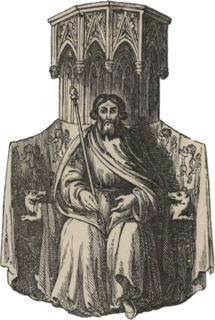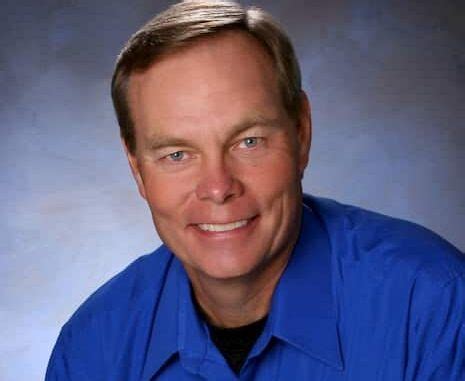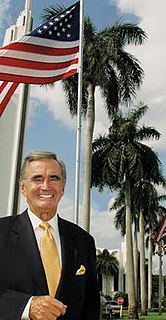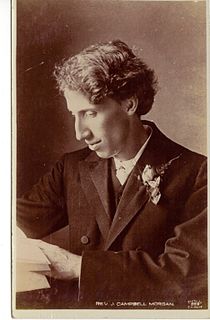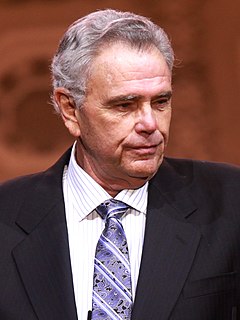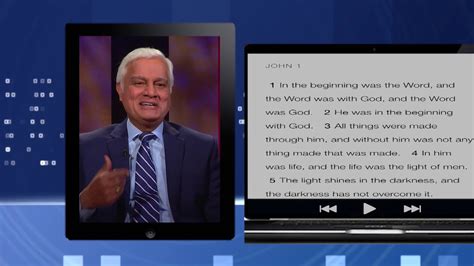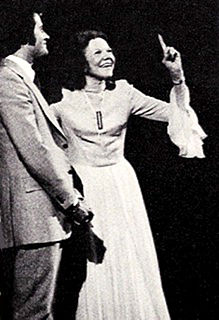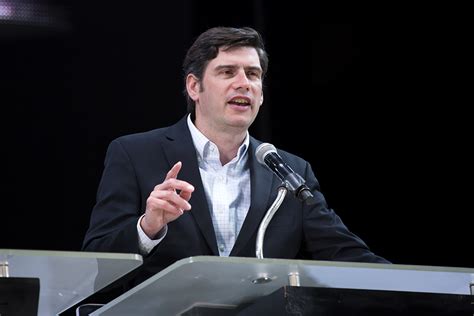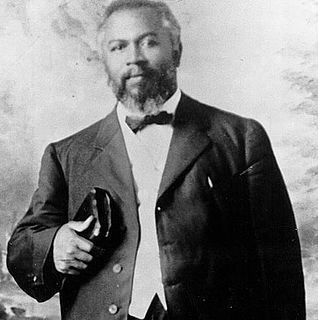A Quote by Smith Wigglesworth
There was never one who came into the world with such loving compassion and who entered into all the needs of the people as did the Lord Jesus. And he declares to us, 'Verily, verily, I say unto you he that believeth on me, the works that I do shall he do also; and greater works than these shall he do, because I go unto my father.' [Jn 14.12] God wants us all to have an audacity of faith that dares to believe for all that is set forth in the word.
Related Quotes
FAITH Coming unto God, I believe that He is, and that He is a rewarder of them that diligently seek Him: I know that my Redeemer liveth; that He is the Christ the Son of the Living God; that He is indeed the Saviour of the world; that He came into the world to save sinners, of whom I am chief. Through the grace of Jesus Christ we believe that we shall be saved even as our fathers withal. I believe verily to see the goodness of the Lord in the land of the living.
When our Lord says, 'I have not spoken of Myself' (Jn. 12:49), and again, 'As the Father said to Me, so I speak' (Jn. 12:50), and 'The word which you hear is not mine, but the Father's Who sent Me' (Jn. 14:24), and in another place, 'As the Father commanded Me, even so I do' (Jn. 14:31), it is not because He lacks deliberate purpose or power of initiative, nor yet because He has to wait for the preconcerted key-note, that He employs language of this kind. His object is to make it plain that His own will is connected in indissoluble union with the Father.
Thy word remaineth for ever, which word now appeareth unto us in the riddle of the clouds, and through the mirror of the heavens, not as it is: because that even we, though the well beloved of thy Son, yet it hath not yet appeared what we shall be. He looked through the lattice of our flesh and he spake us fair, yea, he set us on fire, and we hasten on his scent. But when he shall appear, then shall we be like him, for we shall see him as he is: as he is, Lord, will our sight be, though the time be not yet.
by grace ye are saved, not of works,' but by the will of God through Jesus Christ . . . If we please Him in this present world, we shall receive also the future world, according as He has promised to us that He will raise us again from the dead, and that if we live worthily of Him, 'we shall also reign together with Him,' provided only we believe . . .
When you are sorrowful look again in your heart, and you shall see that in truth you are weeping for that which has been your delight. Some of you say, "Joy is greater than sorrow," and others say, "Nay, sorrow is the greater." But I say unto you, they are inseparable. Together they come, and when one sits alone with you at your board, remember that the other is asleep upon your bed. Verily you are suspended like scales between your sorrow and your joy.
Verily, I say unto you, that the wisdom of man, in his fallen state, knoweth not the purposes and the privileges of my hold priesthood, but ye shall know when ye receive a fullness by reason of the anointing: For it is my will, that in time, ye should take unto you wives of the Lamanites and Nephites, that their posterity may become white, delightsome and just, for even now their females are more virtuous then the gentiles.
'Now we are the sons of God'. This is the starting point of adoption. However, 'it does not yet appear what we shall be: but we know that, when He shall appear, we shall be like Him; for we shall see Him as He is' (I Jn. 3:2). This is the perfection of adoption of sons and renewal which God bestowed on us in Christ, and of which John says in his Gospel that, 'Christ gave power to become the sons of God, even to them that believe on His name: which were born, not of blood, nor of the will of the flesh nor of the will of man, but of God' (Jn. 1:12-13).
'Go to My brethren, and say unto them, I ascend unto My Father, and your Father, and to My God, and your God' (Jn. 20:!7). He is our Father by grace through the Spirit of adoption (Rom. 8:15), but His Father by nature on account of His divinity. Similarly, He is our God as the creator of our human nature, but His God by reason of the dispensation whereby He became man. He made these distinctions so that we might understand the difference.













